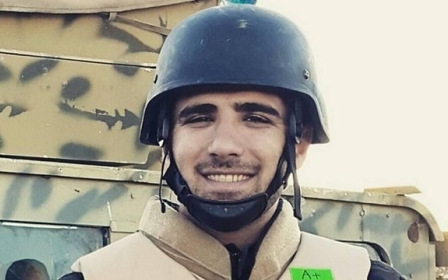Turkish TV channel probed for terrorism after caller says army 'killing babies'

A Turkish TV station is to be investigated for spreading "terrorist propaganda" after a caller from the southeast of the country criticised the army on air for killing "unborn babies, children and mothers" during its crackdown in Kurdish majority areas.
Turkish prosecutors on Monday said that they had opened a criminal probe into the Beyaz Show broadcast on Kanal D on Friday night and would also investigate the programme's producer and presenter for allowing the caller on the air.
The woman, who said she was a teacher named Ayse Celik from the Kurdish-dominated city of Diyarbakir, urged people to raise their voices against what she said was the killing of "unborn babies, children and mothers".
"Are you aware of what is happening in the east of Turkey?" the caller asked. "People are fighting with hunger and thirst, in particular the children. Please be sensitive and do not remain silent. Please have some kind of sensitivity as a human," she said.
Kanal D is owned by the Dogan Group, one of Turkey's biggest conglomerates, and the channel subsequently issued a statement denying the programme had broadcast "terrorist propaganda" although it said that it would take legal action against the caller.
"Our channel, which has always stood with the state against terrorism, is deeply saddened that it became the target of a provocation,” Kanal D said in a statement.
The controversy has erupted as the military presses on with its campaign against the outlawed Kurdistan Workers' Party (PKK) in the Kurdish-majority southeast, which the government says is aimed at flushing out the separatists.
Prime Minister Ahmet Davutoglu has pledged to “cleanse” the area of the PKK and in mid-December sent in 10,000 soldiers to help subdue unrest.
Turkish media reports said that Diyarbakir prosecutors had also opened an investigation against the "supposed teacher AC" on suspicion of making "terrorist propaganda" for the PKK.
The education ministry also said there were only three teachers working in Diyarbakir named Ayse - a very common name in Turkey - and none of them appeared to be the person who called the show. But opponents of the military campaign strongly defended the woman, coining a trending Twitter hashtag #Ayseogretmenyalnizdegildir - meaning "Ayse the teacher you are not alone."
The leader of the pro-Kurdish Peoples' Democratic Party (HDP) Selahattin Demirtas strongly defended the producers and the caller, saying all she had done was to "give a message of peace".
"And then the whole mechanisms of the state gets set into motion, the programme makers get lynched and this women is pursued," he said.
Turkey has long been criticised for its treatment of journalists, with the main opposition party the Republican People's Party (CHP) on Monday saying that 800 journalists were fired in Turkey last year, while 156 were detained. Around 500 legal actions were also taken against journalists by judicial authorities, the party’s deputy chair Sezgin Tanrıkulu said.
Last week, authorities released on bail an Iraqi Kurdish journalist who was working for Vice News after 131 days in jail.
Turkey is ranked 149 out of 180 on the 2015 World Press Freedom Index compiled by Reporters Without Borders. Turkey was also deemed to be “not free” by Freedom House in its annual Freedom of the Press report last year.
Stay informed with MEE's newsletters
Sign up to get the latest alerts, insights and analysis, starting with Turkey Unpacked
Middle East Eye delivers independent and unrivalled coverage and analysis of the Middle East, North Africa and beyond. To learn more about republishing this content and the associated fees, please fill out this form. More about MEE can be found here.




